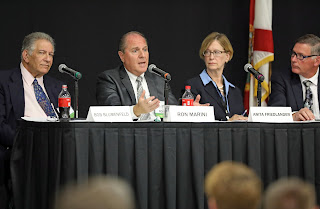The Internal Revenue Service reminded taxpayers that there are several easy options to pay taxes electronically. For those unable to pay on time, the IRS offers a variety of ways to take care of a tax liability.
This is the fifth in a series of nine IRS news releases called the TaxTime Guide, designed to help taxpayers navigate common tax issues.
This year’s tax-filing deadline is April 17. Taxpayers who owe taxes can choose among the following quick and easy electronic payment options:
- Electronic Funds Withdrawal (EFW). This option allows taxpayers to e-file and pay from their bank account when using tax preparation software or a tax professional. EFW is only available when electronically filing a tax return.
- Direct Pay. Available at IRS.gov/directpay, this free online tool allows taxpayers to securely pay their taxes directly from checking or savings accounts without any fees or preregistration. Taxpayers can schedule payments up to 30 days in advance. Those using the tool will receive immediate confirmation when they submit their payment. Taxpayers can opt in to receive email notifications about their payments each time they use Direct Pay.
- Credit or Debit Card. Pay online, by phone or with a mobile device through any of the authorized debit and credit card processors. The processor charges a fee. The IRS doesn’t receive or charge any fees for payments made with a debit or credit card. Go to https://www.irs.gov/payments for authorized card processors and phone numbers.
- IRS2Go. The IRS2Go mobile app is free and offers taxpayers the option to make a payment with Direct Pay for free or by debit or credit card through an approved payment processor for a fee. Download IRS2Go free from Google Play, the Apple App Store or the Amazon App Store.
- Electronic Federal Tax Payment System. This free service gives taxpayers a safe and convenient way to pay individual and business taxes by phone or online. To enroll and for more information, call 800-555-4477, or visit eftps.gov. Both business and individual taxpayers can opt in to receive email notifications about their payments.
- Cash. Taxpayers paying with cash can use the PayNearMe option. Payments are limited to $1,000 per day, and a $3.99 fee applies to each payment. The IRS urges taxpayers choosing this option to start early, because PayNearMe involves a four-step process. Initiating a payment well ahead of the tax deadline will help taxpayers avoid interest and penalty charges. The IRS offers this option in cooperation with OfficialPayments.com/fed and participating 7-Eleven stores in 34 states. Details, including answers to frequently asked questions, are at IRS.gov/paywithcash.
- Same-Day Wire Payments. Taxpayers may be able to do a same-day wire transfer from their financial institution. Contact the financial institution for availability, cost and cut-off times. Download and complete the Same-Day Taxpayer Worksheet and take it to the desired financial institution. If paying for more than one tax form or period, complete a separate worksheet for each payment.
Taxpayers must file their 2017 tax returns by April 17, 2018, or request a six-month extension. Extensions can be requested using Free File, by filing Form 4868 or by paying all or part of the estimated income tax due and indicating that the payment is for an extension using Direct Pay, the Electronic Federal Tax Payment System (EFTPS) or a credit or debit card. Taxpayers do not have to file a separate extension form and they receive a confirmation number for their records.
Taxpayers who choose to pay by check or money order should make the payment out to the “United States Treasury.” To help ensure that the payment gets credited promptly, also enclose a Form 1040-V payment voucher. Also, print on the front of the check or money order: “2017 Form 1040”; name; address; daytime phone number; and Social Security number.
Taxpayers can go to IRS.gov/account to securely access information about their federal tax account. They can view the amount they owe, pay online or set up an online payment agreement; access their tax records online; review the past 18 months of payment history; and view key tax return information for the current year as filed. Visit IRS.gov/secureaccessto review the required identity authentication process.
Taxpayers who owe, but cannot pay the balance in full, do have options. Often, they qualify for one of several relief programs, including:
Payment Plans, Installment Agreements -- Most individuals can set up a payment plan, including an installment agreement, with the IRS. If you owe $50,000 or less in combined tax, penalties and interest you may qualify for a long-term payment plan of up to 72 months. If you owe less than $100,000 in combined tax, penalties and interest, you may qualify for a short-term payment plan of up to 120 days. Alternatively, for a long-term payment plan, taxpayers can request an installment agreement by filing Form 9465. Download the form from IRS.gov and mail it along with a tax return, IRS bill or notice.
Offer in Compromise -- Some taxpayers may qualify for an offer in compromise. This is an agreement between a taxpayer and the IRS that settles the taxpayer’s tax liabilities for less than the full amount owed. To help determine eligibility, individual taxpayers may use the Offer in Compromise Pre-Qualifier, a free online tool available on IRS.gov.
Taxpayers can find answers to tax questions, tax forms and instructions and easy-to-use tools online at IRS.gov24 hours a day, seven days a week. No appointments needed and no waiting on hold.
Read more at: Tax Times blog












